First 10 Days of Dhul Hijjah 2025: Significance + 10 Good Deeds to Do

Almighty Allah has gifted this Ummah some noble times to earn more rewards. The first 10 days of Dhul Hijjah are one of them for many reasons, including the day of Arafah, Hajj, Eid Al-Adha, etc. This period is mentioned as the best days of the year in the hadith books.
According to Sunnah, it’s recommended to fast on the first 9 days, especially on the day of Arafah. Besides this, increase your Dhikr, do more Ibadah, (if possible) do Hajj and Udhiya, and so on.
Let’s learn the virtues of these blessed times and some good things we can do to make the most of the first ashra of Dhul Hijjah.
Dhul Hijjah Meaning
Dhu al-Hijjah (ذُو ٱلْحِجَّة) is one of the four sacred months in the lunar calendar. Dhul Hijjah means ‘The Month of the Hajj/Pilgrimage’. During this month, Muslims around the world gather in Makkah to perform Hajj to please Allah.
When is the Dhul Hijjah 2025?
Dhul Hijjah is the last month of the Islamic calendar, following the month of Dhul Qa’dah. In 2025, Dhul Hijjah 1446H is expected to begin on May 28, marking the start of the first ashra of Dhul Hijjah. The month is expected to end on June 25. But the dates may vary depending on moon sighting in your region.
Note: Check out the Sadiq app to track the special days of Islamic calendar and make the most of them.
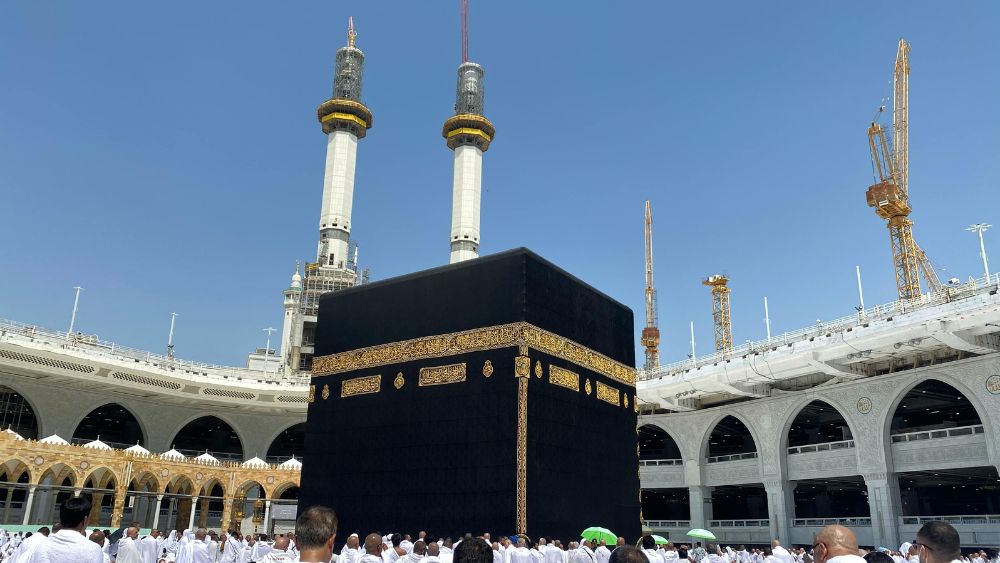
Why is the First Ten Days of Dhul Hijjah Important?
What is the importance of Dhul Hijjah’s first 10 days? There are different reasons that make the beginning ten days of Dhul Hijjah honourable. Some of them are-
1. Dhu’l Hijjah is a sacred (حَرَام) month in Islam and these days are on this month.
Dhul Hijjah is one of the four sacred months chosen by Allah Subhanu Wa Ta’Ala. Allah’s Messenger ﷺ said:
“The division of time has turned to its original form which was current when Allah created the Heavens and the Earth. The year is of twelve months, out of which four months are sacred: Three are in succession Dhul-Qa’ da, Dhul-Hijjah, and Muharram, and (the fourth is) Rajab of (the tribe of) Mudar which comes between Jumadi-ath-Thaniyah and Sha’ban.” [Sahih Al-Bukhari: 3197]
2. Allah (SWT) swears an oath by the first ten days of Dhul Hijjah in the Quran
وَٱلْفَجْرِ ١ وَلَيَالٍ عَشْرٍ ٢
“By the dawn; And by the ten nights.” [Sura Al-Fajr, 89: 1-2]
According to many Sahaba (R), Tabee (RA), and Mufassir (RA) including Abdullah Ibn `Abbas (R), Abdullah Ibn Zubair (R), and Mujahid (RA), these verses indicate the first 10 days of Dhul-Hijjah. Ibn Kathir (R) said, “This is the correct opinion.” [Tafsir Ibn Kathir]
You can check our Al Quran (Tafsir & by Word) app to learn more.
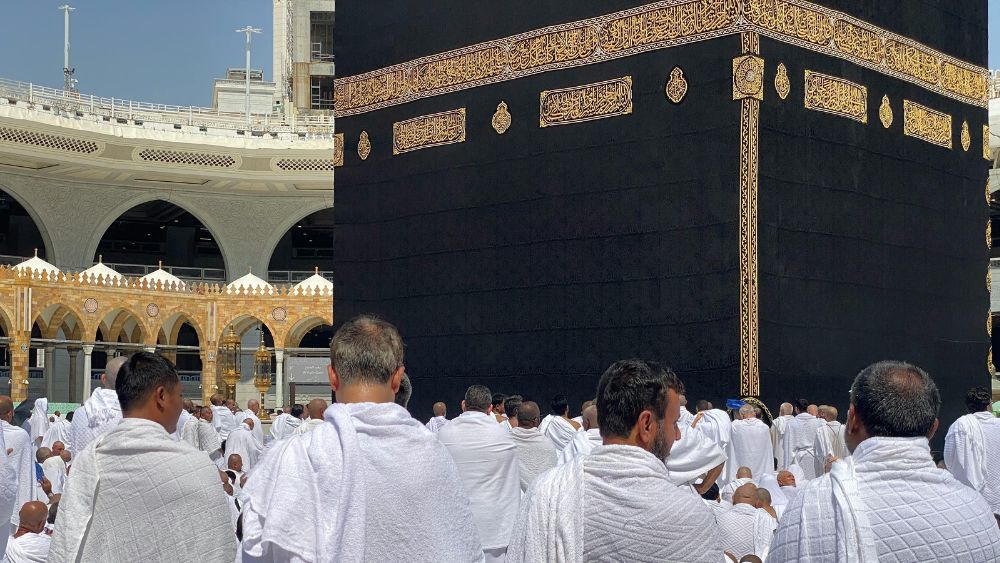
3. The Prophet Muhammad ﷺ mentioned these days as the best days of the year
Jabir (R) narrated a hadith from Allah’s Messenger ﷺ, “There is no better day to Allah than the 10 days of Dhul Hijjah.” [Sahih Ibn Hibban]
4. The first Ashra (period) of Dhul Hijjah contains lots of honourable days.
These ten days before Eid ul-Adha include several honourable days and events like the Day of Arafah, Day of Sacrifice, Hajj events, and more that extend the virtues of Dhul Hijjah.
10 Important Things to Do on Dhul Hijjah’s First 10 Days
The beginning ten days of the Islamic month of Hajj are blessed days of the entire year and hold great potential for reward and spiritual benefits. Here are several acts of worship that we can do to make this period effective.
1. Hajj and Umrah
The thing that makes the first period of Dhul Hijjah so glorious is Hajj, which is one of the five pillars of Islam. The rituals of Hajj are derived from the Sunnah of Ibrahim (AS). Performing hajj is obligatory for Muslims who can afford it. And many Muslims also do Umrah during this time.
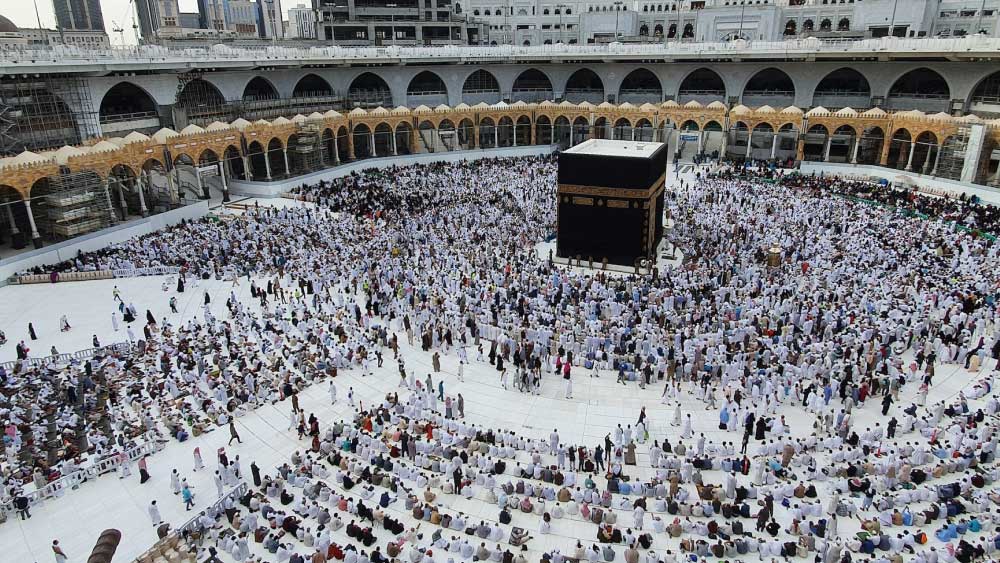
In the Quran, Allah Subhanhu Wa Ta’Ala says about Hajj,
“Performance of Hajj (pilgrimage) to this House is a duty to Allah for all who can afford the journey to it; and the one who disobeys this commandment should know that Allah is Self-sufficient, beyond the need of anyone from the worlds.” [Sura Aal-e-Imran, verse 97)
“Allah’s Messenger ﷺ said, “The performance of Hajj and ‘Umrah (lesser pilgrimage) expiate for the sins committed to between them, and an accepted Hajj has no reward but Paradise.” [Sahih Bukhari]
Check out this article to learn authentic duas about Hajj and Umrah.
2. Fasting on the First Nine Days, Especially on Arafah Day
It is an important Sunnah to fast on the first 9 days of Dhul Hijjah. These days are glorious to Allah, so fasting during Dhul Hijjah will make you rewarded. But if they are unable to Fast these 9 days, at least Fast on the day of Arafah.
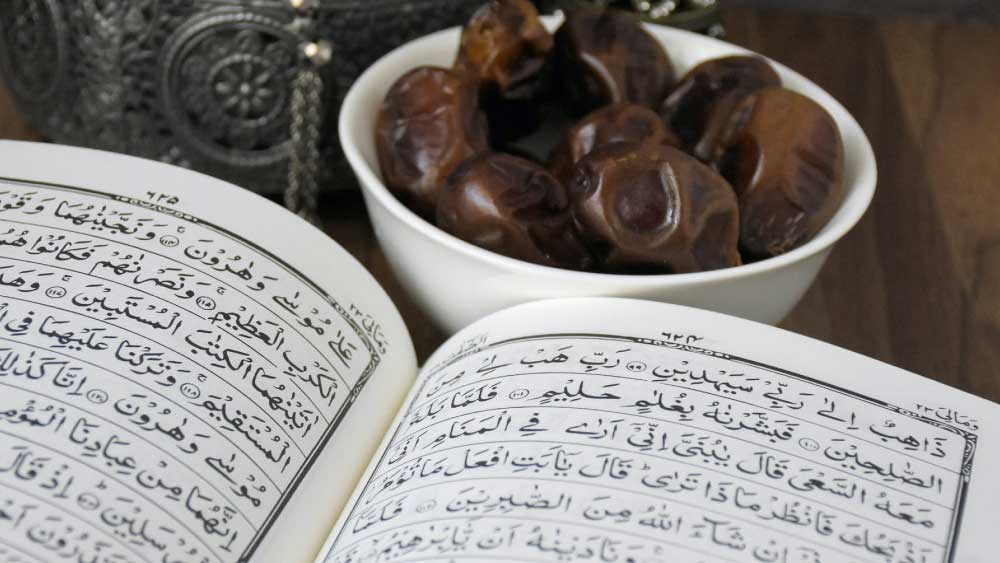
Ummul Mu’minin Hafsa (R) narrated that: “Allah’s Messenger ﷺ never left four deeds- fasting of Ashura, fasting the first decade of Dhul Hijjah, fasting three days (ayyam al-beed) of every month, two raka’h Sunnah prayers before Fajr.” [Sunan Nasa’i, Musnad Ahmad]
Fasting on the first 9 days of Dhul Hijjah is recommended for those who are not doing Hajj. It’s not recommended for Hujjaj (pilgrim) due to their difficulties. At least you should fast on the Arafah day (9th Dhul Hijjah) as it expiates the sins of the year before and the coming year.
Abu Qatada (R) narrated that Allah’s Messenger ﷺ said about fasting on the day of Arafah, “If you fast on the day of Arafah, I hope that Allah will forgive the sins of one year before and one year after fasting.” [Sahih Muslim]
3. Make Lots of Dhikr, Especially Takbeer
During the ten days of Dhul Hijjah, it is recommended to recite more Dhikr, especially Takbeer frequently. This serves as a reminder of the greatness of Allah and our gratitude to Him.
Our beloved Prophet Muhammad ﷺ said, “There are no days that are greater before Allah or in which good deeds are more beloved to Him than these ten days (of Dhul Hijjah), so increase reciting Tahleel, Takbeer, and Tahmeed during then.” [Musnad Ahmad]
Another narration of the hadith of Musnad Ahmad says to recite Tasbeeh, Tahmeed, and Tahleel.
Takbeer:
الله أكبر
Transliteration: Allahu Akbar
Meaning: Allah is the Greatest
Tahmeed:
ٱلْحَمْدُ لِلَّٰهِ
Transliteration: Al-hamdu Lillah
Meaning: All praises be to Allah
Tahleel:
لا إله إلا الله
Transliteration: La ilaha ill-Allah
Meaning: There is no god but Allah
Tasbeeh:
سُبْحَانَ ٱللَّٰهِ
Transliteration: Subhaan-Allah
Meaning: Glory be to Allah
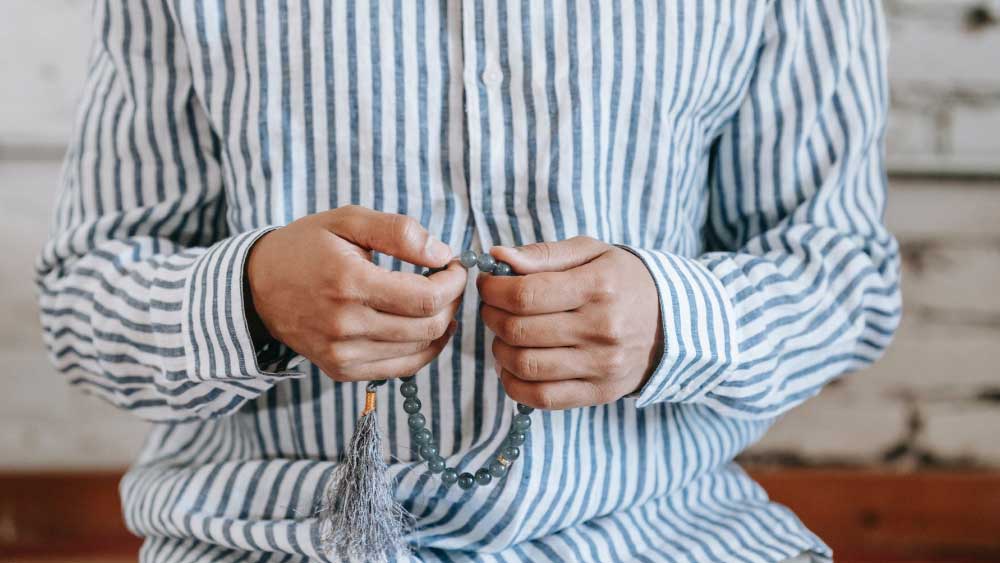
It’s Wajib (mandatory) to say Takbeer after each Fard prayer from the 9th Dhul Hijjah Fajr prayer to the 13th Dhul Hijjah Asar prayer. These 5 days are called Ayyam e Tashreek when men should recite the above-mentioned Takbeer aloud and women silently.
The recommended Takbeer E Tashreek is:
الله أكبر، الله أكبر،لا إله إلاالله والله أكبر،الله أكبر ولله الحمد
Transliteration: Allahu Akbar, Allahu Akbar, La ilaha illallah, Allahu Akbar, Allahu Akbar, wa lillahil Hamd
Meaning: Allah is the Greatest, Allah is the Greatest, there is no God except Allah, Allah is the Greatest, Allah is the Greatest, and all praise belongs to Allah)
It is also recommended to increase your Dhikr like SubhanAllah, Alhamdulillah, Allahu Akbar, La ilaha illa-Allah, SubhanAllahi wa-bihamdihi, SubhanAllahil Azeem, and many more on the first period of Dhul Hijjah month.
4. Doing More Worship
The ten days of Dhul Hijjah are an excellent opportunity to engage in increased acts of worship such as voluntary prayer (especially Tahajjud), recitation of the Quran, giving charity, making supplications, kindness to others, and other worship. This brings abundant rewards and blessings from Allah. These acts of devotion help purify the soul, increase one’s faith, and earn closeness to our Almighty Allah.
The Messenger of Allah ﷺ says, “There are no days on which righteous deeds are more beloved to Allah (SWT) than these (first) 10 days (of Dhul Hijjah).” [Sahih Bukhari]
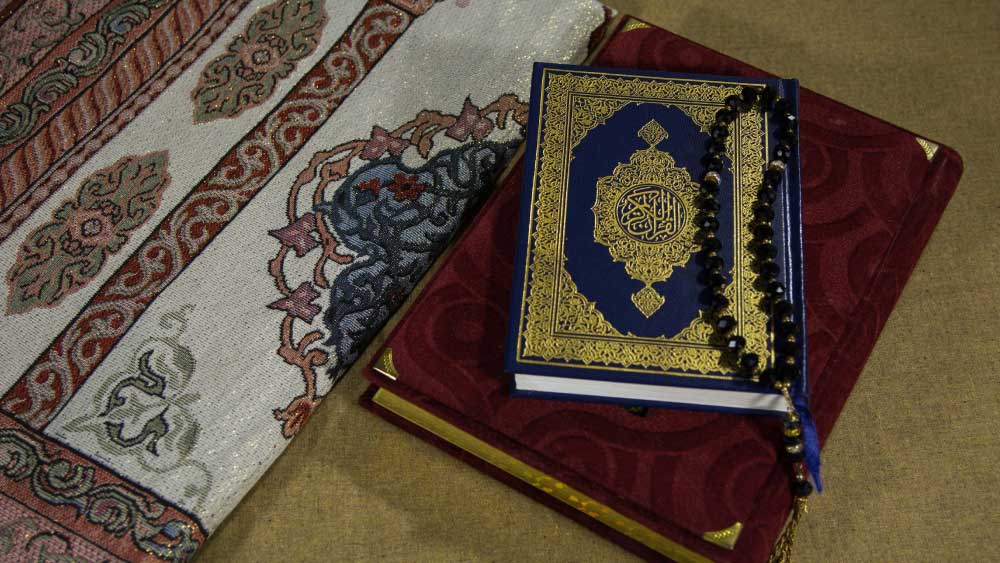
There are many hadiths regarding these days that also prove praying on the initial ten days of Dhul Hijjah is better than other good deeds. In some Dhul Hijjah Hadiths, praying on these nights is mentioned as similar to praying on Laylatul Qadr.
As worshipping in the starting ten days has immense rewards and blessings so try to involve all kinds of Ibadah you can. And keep in mind to give charity in this sacred time. We highly recommend you support us in bringing more people closer to Allah in this blessed month of Dhul Hijjah. Your contribution will accelerate our work of developing Islamic apps and make us more sustainable.

5. Seeking Forgiveness
The Prophet Muhammad ﷺ said, “There are no days in which righteous deeds are more beloved to Allah than these ten days.” [Sahih Bukhari]
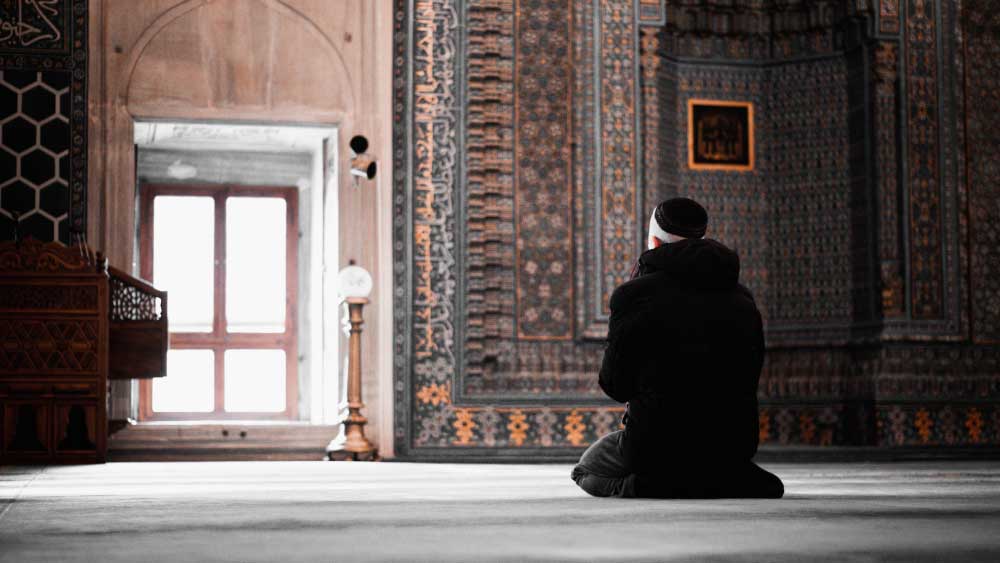
It is a time to seek forgiveness for our sins, repent sincerely, and make a firm commitment to change for the better. The initial ten days of Dhul Hijjah are a period of self-observation and repentance. Muslims are encouraged to reflect on their actions, seek forgiveness for their past sins, and resolve to make positive changes in their lives. It is a time to purify the heart, seek reconciliation with others, and strive for personal growth in Ibadah and Emaan.
6. Special Supplication on the Day of Arafah
The 9th day of Dhul Hijjah is known as the Day of Arafah (Yawm al-Arafah. On that day, Hajj pilgrims gather in the plain of Arafah in Makkah, seeking forgiveness and supplicating to Allah.
A hadith narrated by Ayesha (RA), Allah’s Messenger ﷺ said: “On the day of Arafah, Allah (SWT) frees a larger number of His servants from Hell.” [Sahih Muslim]
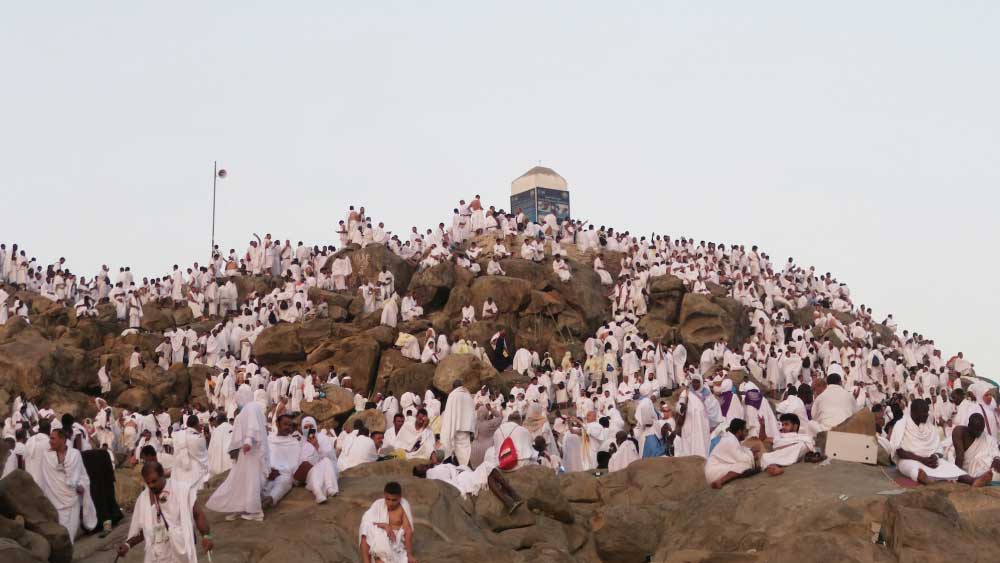
For those who are not performing Hajj, fasting on this day holds great rewards. The Messenger of Allah ﷺ said, “Fasting on the Day of Arafah absolves the sins of the previous year and the coming year.” [Sahih Muslim]
It’s also important to offer more supplications (Dua) to the Almighty Allah (SWT) as The Messenger of Allah ﷺ said, “Dua on the day of Arafah is the best Dua.” [Jami At-Tirmidhi]
You can make a list of duas so that you make lots of supplications and don’t miss anything. You can use dua apps like Hisnul Muslim to bookmark your favourites and impact duas from Quran and Sunnah so that you can utilize them on the best day of the year.
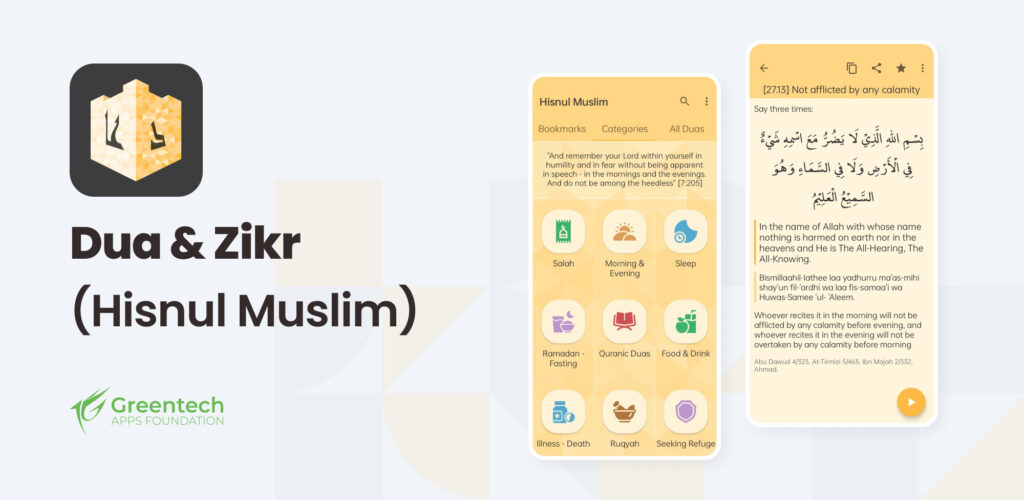
7. Don’t Cut Hair, Nails, Sprains
Another important Sunnah in the first 9 days of Dhul Hijjah is not to cut your nails, hair, hair below the navel, etc. Messenger of Allah ﷺ said, “If you see the moon of Duhl Hijjah and intend to perform Qurbani (sacrifice), you shouldn’t cut your hair and nails.” [Sahih Muslim, Abu Dawud, Sunan Nasa’i]
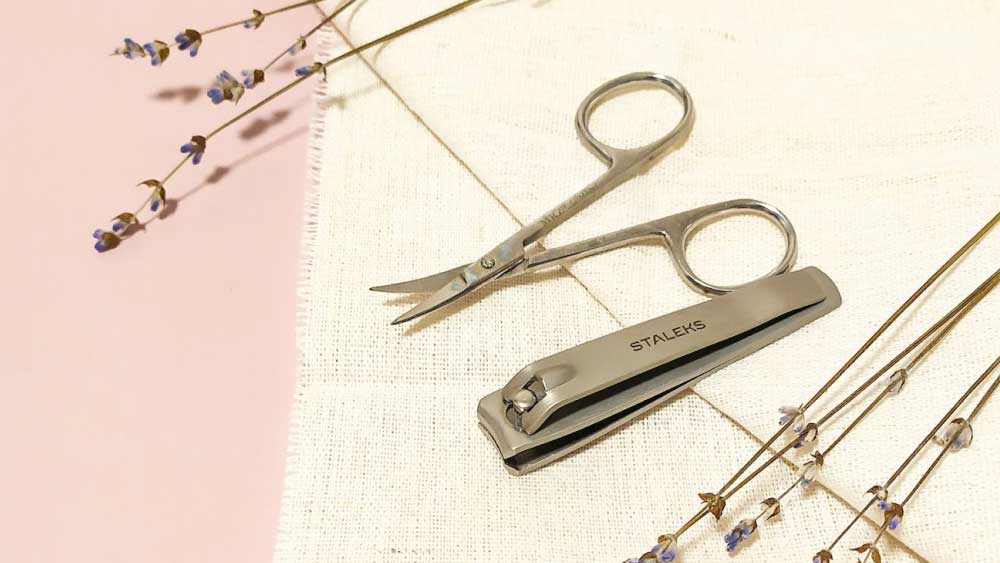
Based on the Hadith, some scholars say it’s Mustahab and another group says it’s Wajib (mandatory) for the sacrificers to avoid cutting nails and hair before offering Qurbani. But the family members of the sacrificers can cut hair or clip nails.
And some Islamic jurists also say this is applicable to both those who intend to sacrifice and those who do not sacrifice. Allah Subhanahu Wa Ta’Ala knows the best.
8. Offering Udhiya (Qurbani)
The tenth day of Dhul Hijjah is known as Eid al-Adha, the Festival of Sacrifice. Muslims who are economically solvent are encouraged to offer a sacrifice as an act of obedience and gratitude to Allah. The sacrifice serves as a reminder of the obedience of Prophet Ibrahim (AS) and his willingness to sacrifice his son Ismail (AS) for the sake of Allah. Muslims around the world participate in this festival by slaughtering their sacrificial animals and distributing the meat to the less fortunate, symbolizing generosity and sharing with others.
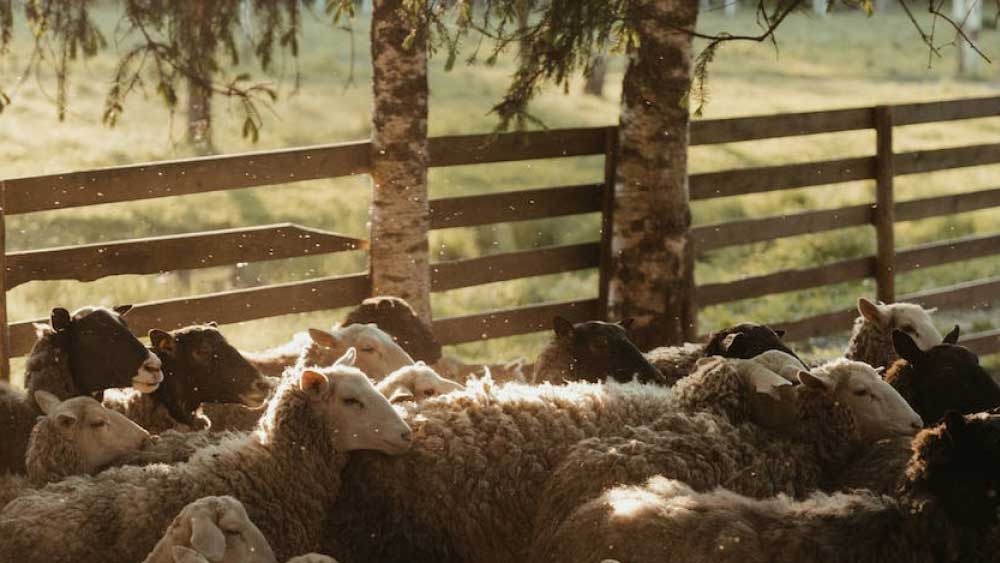
Allah (SWT) says about Udhiya (Qurbani) in the following verse of the Quran,
‘’So, pray to your Lord and offer sacrifice (to Him alone).’’ [Surat al-Qawthar, verse 2]
Offering sacrifice is the best deed on the day of Eid al-Adha that is mentioned in many hadiths. For example-
The mother of believer Ayesha Siddiqa (RA) narrated, the Prophet ﷺ said, “The most beloved deed to Allah on the day of Sacrifice among all the good deeds is the shedding of blood (through animal sacrifice). The sacrificial animal will rise on the Day of Resurrection with its horns, hooves, and fur. Before the blood of the sacrificial animal falls on the ground, it is accepted by Allah. So, O servants of Allah! Sacrifice with a spontaneous heart.” [Jami At-Tirmidhi, Ibn Majah]
In another hadith, Allah’s Messenger ﷺ said, “He who does not perform Sacrifice (Qurbani) in spite of his ability should not even come near our Eid prayer place.” [Sahih Bukhari, Ibn Majah]
9. Spending Eid in Sunnah Way
It is Sunnah to offer Eid al-Adha prayer with the community in the 10th Dhul Hijjah. On Eid day, you should also take a bath, wear good clothes, and use perfume. And you shouldn’t eat anything before the Eid ul-Adha. After completing the Eid prayer and sermon, your main task is to sacrifice.
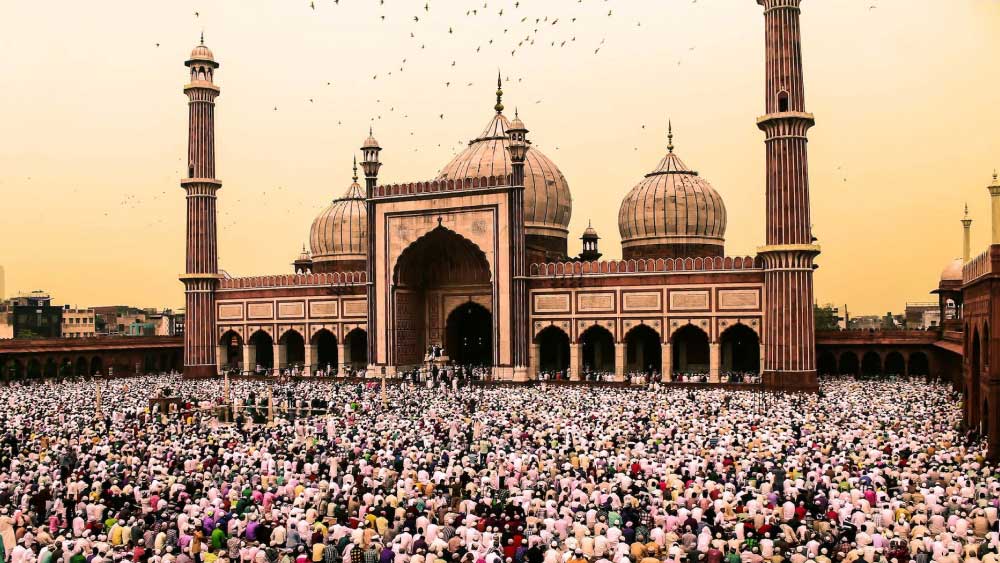
The Messenger of Allah ﷺ said, “Today we will perform the Eid prayer first. Then I will sacrifice…” [Sahih Bukhari]
After performing Qurbani, share the meat with those in need, your relatives, and neighbours. Also, exchange Eid greetings with each other.
Say this in Eid greetings
تَقَبَّلَ اللَّهُ مِنَّا وَمِنْكُمْ
“May Allah accept from us and you (our good deeds)”. [At-Tabarani, Fathul Bari]
10. Abstain from Sins
We should always refrain from all sorts of sins. We should be more careful about it during the sacred month of Dhul Hijjah, especially in the blessed first 10 days.
Allah says about the sacred month in the Quran:
فَلَا تَظْلِمُوا۟ فِيهِنَّ أَنفُسَكُمْۚ
“…So do not wrong yourselves during them.” [Sura At- Taubah: 36]
FAQs
Q. How to pray at the beginning of 10 days of blessed Dhul Hijjah?
Ans. There is no specific rule. You can pray, do Dhikr, recite the Quran, give charity, etc, as much as possible.
Q. Is Dhul Hijjah Fasting Sunnah?
Ans. Yes, it’s Sunnah to fast on the first 9 days of Dhul Hijjah. But if you are performing Hajj, you shouldn’t Fast on Arafah Day (9th Dhul Hijjah). You will find the background of the Hajj here.
Final Words
The initial ten days of Dhul Hijjah hold immense spiritual significance in Islam. Muslims are encouraged to make the most use of this blessed time by engaging in acts of worship, seeking forgiveness, and getting closer to Allah. You can do it through fasting, voluntary prayers, recitation of the Quran, sincere repentance, Dhikr, acts of charity, performing Hajj, and other Sunnah actions.
The lessons and virtues obtained during this time can have a lasting impact on the individual’s spiritual journey. By embracing the essence of this decade, we can strengthen our connection with Allah and strive to become our best versions inshaAllah.


